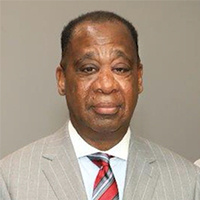Huntersville Criminal Lawyer, North Carolina
Sponsored Law Firm
-
 x
x

Click For More Info:
-
George E Gibbs Jr. Attorney at Law
Matthews, NC 28105» view mapCriminal Defense Mathews Criminal Defense Attorney
George has experience with a variety of criminal and traffic offenses in North Carolina and can help you with your matter today.
800-319-3560
Carlos R. Emory
✓ VERIFIEDAccident & Injury, Divorce & Family Law, Criminal, Consumer Rights, Immigration
C. Randy Emory was born and raised in the small, rural town of Wilson NC. Throughout his childhood, Mr. Emory displayed many leadership qualities. In ... (more)
Amelia Lynn Beisner
Commercial Real Estate, Federal Appellate Practice, Criminal, Real Estate
Status: In Good Standing Licensed: 35 Years
Amy F. Zacharias
Family Law, Divorce & Family Law, Criminal
Status: In Good Standing Licensed: 38 Years
Bryan P. Durrett
Commercial Real Estate, Employment Discrimination, Criminal, Personal Injury
Status: In Good Standing Licensed: 26 Years
 George Gibbs Matthews, NC
George Gibbs Matthews, NC AboutGeorge E Gibbs Jr. Attorney at Law
AboutGeorge E Gibbs Jr. Attorney at Law Practice AreasSpecializations
Practice AreasSpecializations

